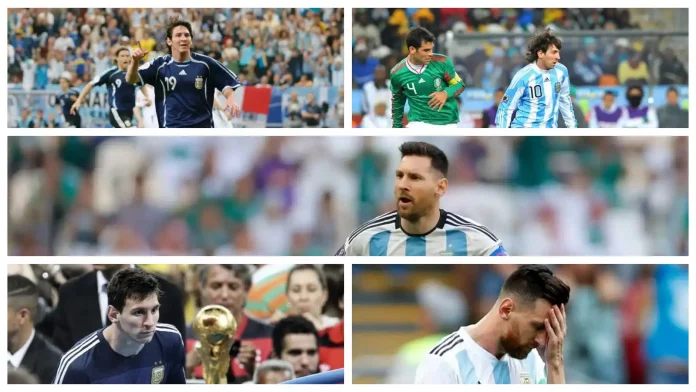Lionel Messi, regarded as one of the all-time greatest players, is the pride and joy of Argentina’s contemporary generation. Lionel Messi evolution is one the most inspiring thing in the whole football world.
Known as “La Pulga” due to his diminutive size, Messi has wowed audiences all around the world over his 18-year career. Messi, who competes at the club level for Barcelona and PSG, has led the Argentina national team since making his debut in 2005.
In 2006, he was considered “a kid,” in 2010, he still lacked “enough experience,”. In 2014, at the competition that his coaches had deemed to be his finest opportunity for success, his hopes were destroyed by a humbling loss at the hands of his enduring foes.
Messi has come under more scrutiny because of the prominent roles that Mario Kempes and, in especially, Diego Maradona, played in 1978 and 1986, respectively. He must, in the eyes of some, win the World Cup.
Let’s have a look at Lionel Messi evolution from 2006 to the 2022 world cup.
Real More: Portugal sacked Coach Fernando Santos following the team’s World Cup Exit
World Cup Evolution of Lionel Messi
2006
Lionel Messi started his evolution journey in 2006 for Argentina. At the age of 18, Messi made his World Cup debut in Serbia and Montenegro vs. Argentina in the second group stage match. After coming on as a substitute in the 74th minute, the team’s sixth goal—and fourth assist—was immediately scored. The score ended up being 6-0. Due to Argentina resting starters after securing a spot in the knockout rounds, he got his first World Cup to start in the 0-0 draw against the Netherlands.
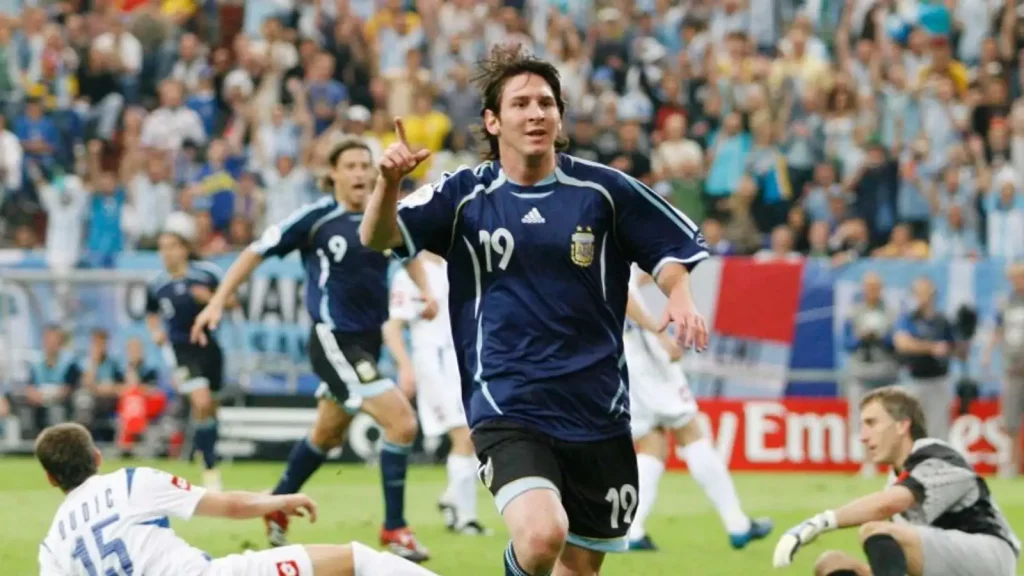
2010
The journey from Argentina to South Africa was anything but smooth. Messi only managed four goals in 18 qualifying matches due to frequent positioning deep in the middle of the field. The Barcelona superstar and manager Diego Maradona didn’t fully understand the perfect squad shape where the 23-year-old could play in his favorite position until a meeting just before the competition. Argentina swept the World Cup group stages, with Messi dominating in his playmaking capacity. He didn’t finally enter the scoresheet until a 3-1 victory over Mexico in the round of 16 thanks to an assist to Carlos Tevez on the game’s first goal. Argentina’s World Cup run came to an end as they lost to Germany 4-0 in the quarterfinals.
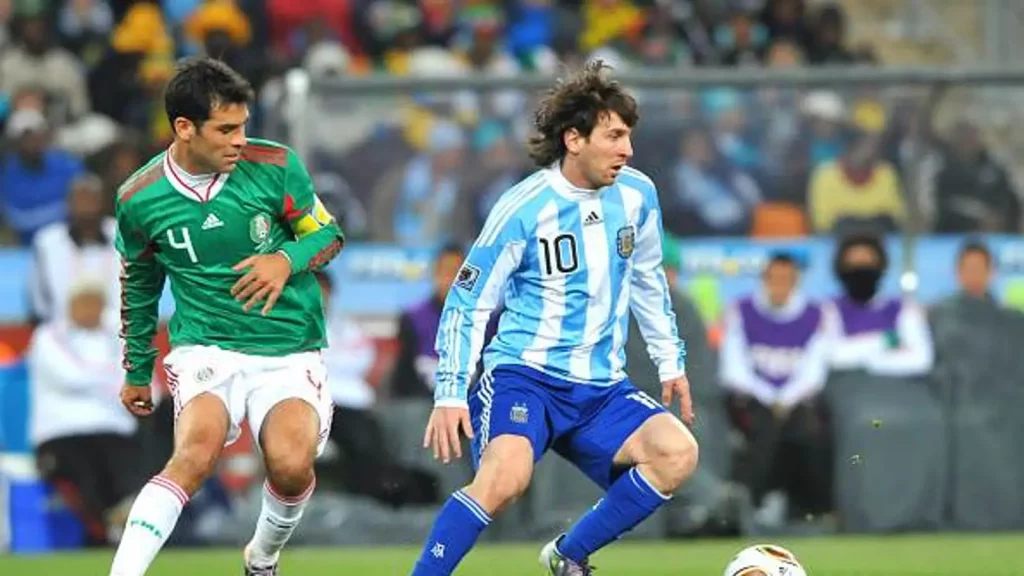
Read More: FIFA Club World Cup: FIFA set to launch a new Club World Cup in 2025 with 32 teams
2014
Messi entered the 2014 World Cup prepared to lead Argentina to victory after donning the captain’s armband and becoming the physical representation of leadership. Argentina dominated the group stage once more, but not without some heroics from the group’s new captain. He netted two goals when the team defeated Iran 1-0 and Bosnia and Herzegovina 2-1, both by scoring late goals from 23 yards out. He maintained this momentum into the knockout rounds, contributing to an extra-time goal in a 1-0 victory over Switzerland, and making his shot in the penalty shootout in Argentina’s match against the Netherlands.
Argentina would play Germany in the championship game for the third consecutive tournament. This time, the contest was promoted as putting the best player in the world versus the competition’s top team. More than Germany’s ability to thwart Argentina’s chances, the game was defined by Argentina’s inability to convert its opportunities. In the end, Germany capitalized on the dearth of offensive success. As super-substitute Mario Gotze scored the game-winning goal in the 113th minute of extra time. Even though he lost, Messi was still given the Golden Ball for being the competition’s top player. Once more, the local press was very critical of his failure to bring any hardware home for his nation.
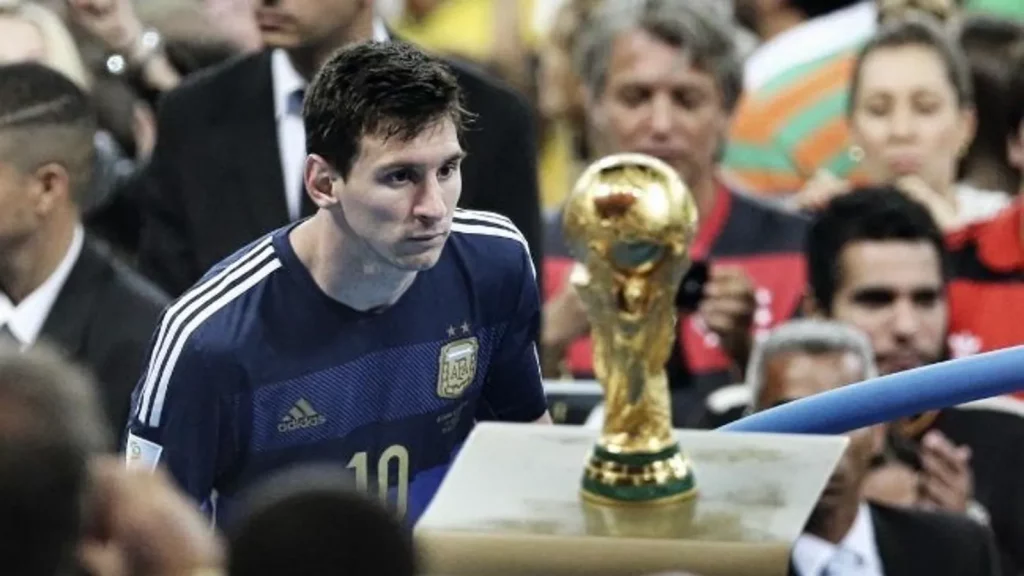
2018
Messi’s first 180 minutes of play in a soccer international event were a complete failure. His squad had to settle for a 1-1 draw after he missed a penalty that would have given Argentina the advantage over Iceland. In the following match, which saw Argentina lose to Croatia 3-0, he made even less of an impression. He would have exited the tournament in the group stage for the first time in his career. If it weren’t for a late Marcos Rojo game-winning goal against Nigeria in stoppage time.
Notably, he scored his first goal of the tournament in that contest. Even though he helped Argentina get out to an early lead. In the early phases of a comeback, his 2018 season ended in the Round of 16 against France. Unfortunately for him, it wasn’t enough as Kylian Mbappe’s double helped France win 4-3. Neutral spectators who desired to watch a quarterfinal encounter between Messi and Ronaldo were particularly hurt by this defeat. The only place the two top athletes will now collide is in the airport as they return home.
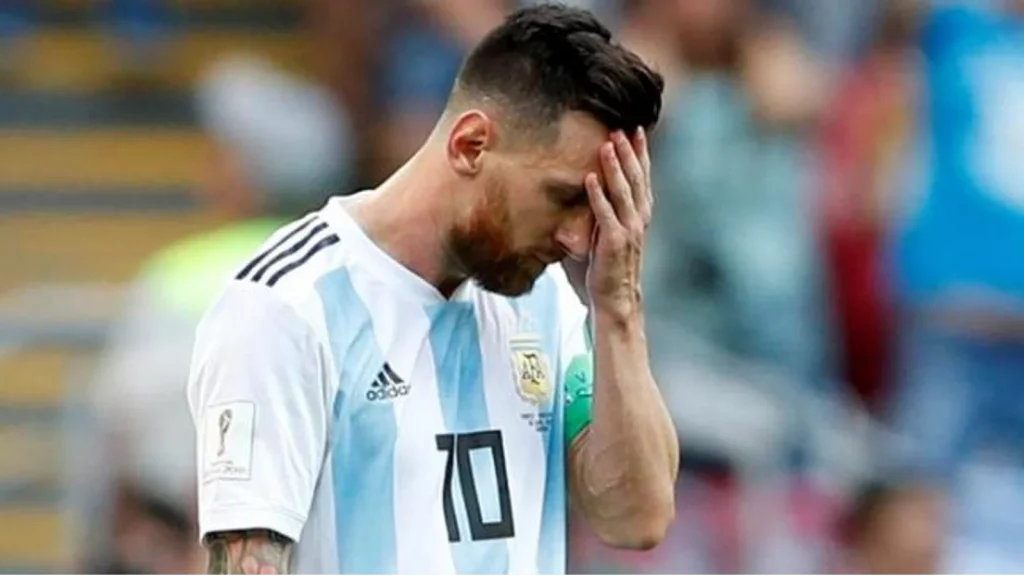
Read More: Will Lionel Messi miss the SemiFinal against Croatia?
2022
Argentina is currently in the FIFA World Cup 2022 final. Lionel Messi has fully dominated the 2022 season after his World Cup 2022 performance. Messi has said that Sunday’s final will be his final World Cup match. With five goals in the 2022 edition, Messi is tied with Frenchman Kylian Mbappe for first place in the standings for the Golden Boot, which is given to the World Cup tournament’s top scorer.
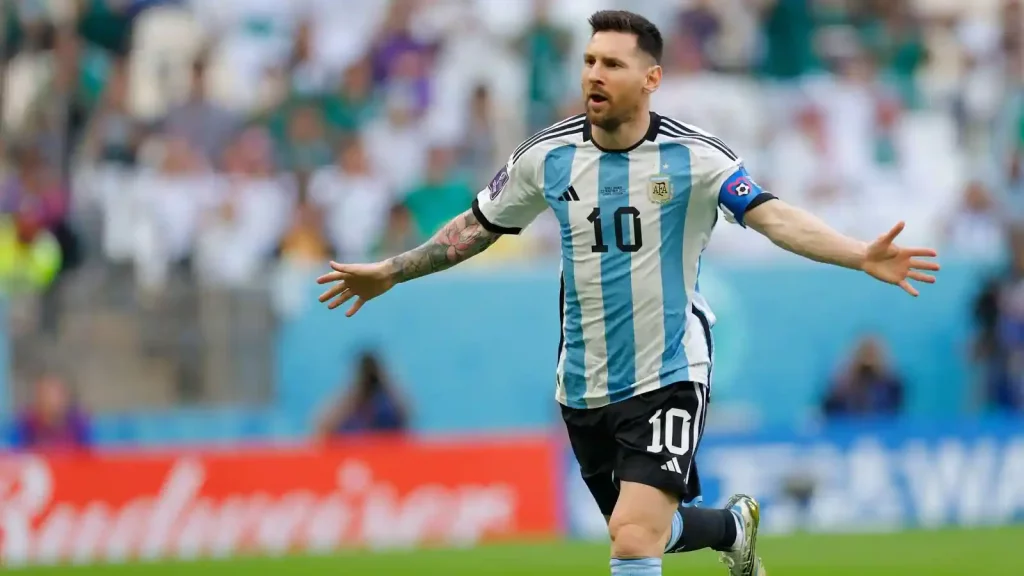
Lionel Messi’s last ride with Argentina
Argentina’s tiny genius Lionel Messi has saved the most magical scene for his final FIFA World Cup. He still has one line to write it. As if he hadn’t already created enough fairy tales.
Messi has shone at the Qatar competition while other superstars like Neymar and Cristiano Ronaldo have disappointed and left the tournament early. There is a lot of expectation on him to emulate great Diego Maradona and return the title to Buenos Aires.
Messi, who is 35 years old, is towards the conclusion of his career. He has played in his sixth World Cup. Yet he has been the tournament’s standout player from Argentina’s first game until their victory over Croatia in the semi-final.
Thank you for reading it. Leave us a comment if you liked it.
Do follow us on: Google News | Facebook | Instagram | Twitter | Youtube | LinkedIn
Have a good day ahead 🙂

